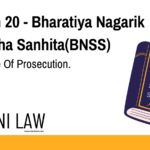CrPC Section 441: Bond of Accused & Sureties
1. State the Code:
Section 441 of the Code of Criminal Procedure (CrPC) deals with the power of a Magistrate to take a bond from an accused person and their sureties for good behavior or for their appearance in court.
2. Explanation:
This section empowers a Magistrate to require an accused person, who has been released on bail or after being discharged, to execute a bond with or without sureties for the following reasons:
- To ensure the accused’s good behavior.
- To ensure the accused’s appearance before the court on a specified date.
The Magistrate can impose conditions on the accused and their sureties, such as:
- Restrictions on travel.
- Reporting to the police station.
- Abstaining from certain activities.
If the accused fails to comply with the conditions of the bond, the Magistrate can issue a warrant for their arrest and forfeit the amount of the bond.
3. Illustration:
Imagine a person is accused of rioting and is released on bail. The Magistrate, concerned about the potential for further violence, can order the accused to execute a bond with sureties for good behavior. The bond might require the accused to stay away from the area where the riot occurred and to report to the police station regularly.
4. Common Questions and Answers:
Q1: Who can require a bond under Section 441?
A: Only a Magistrate can require a bond under this section.
Q2: What are sureties?
A: Sureties are individuals who guarantee the accused’s compliance with the bond conditions. They are usually family members or friends of the accused.
Q3: Can the accused be released without sureties?
A: Yes, the Magistrate can release the accused on a personal bond, without requiring sureties.
Q4: What happens if the bond is forfeited?
A: If the bond is forfeited, the Magistrate can order the accused and their sureties to pay the amount of the bond to the government.






